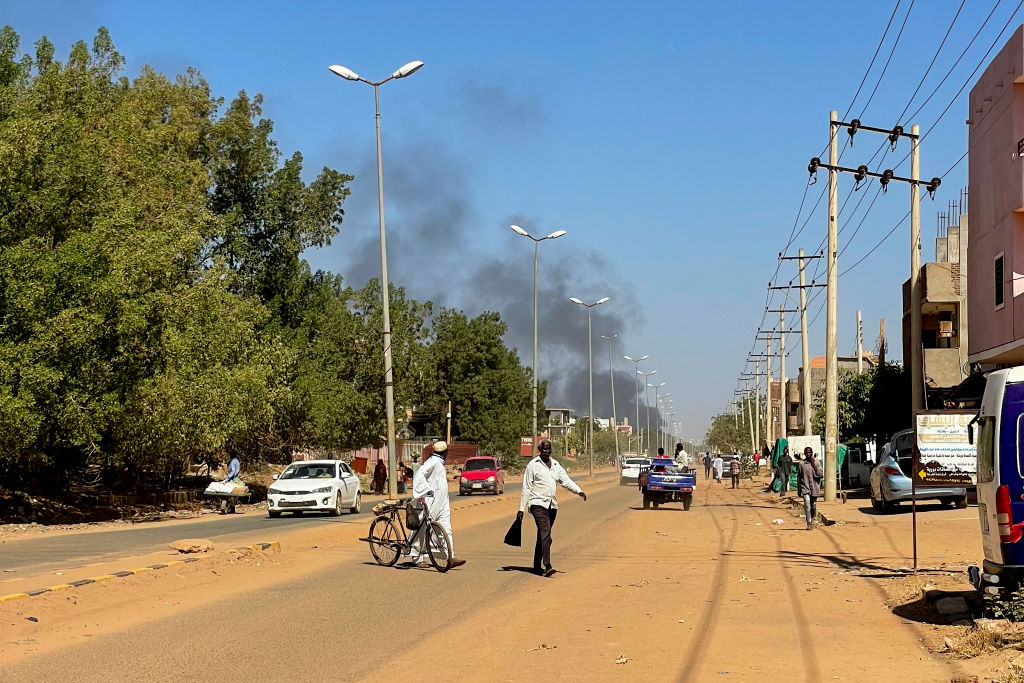ADF STAFF
As Sudan’s paramilitary Rapid Support Forces (RSF) continues to claim territory from the Sudanese Armed Forces (SAF), experts are warning of a protracted civil war with disastrous regional implications.
After nine months of fighting, the RSF controls most of the west part of the country and much of the capital, Khartoum, while the SAF is holding onto areas in the east. Both sides appear to have the weaponry and external support to continue fighting for months, making this new phase of the war particularly dangerous, according to an analysis by the International Crisis Group (ICG).
“The paramilitaries have essentially won the first phase of the war, routing the army in most of the west and Khartoum, and in effect dividing the country into two zones of control dotted with pockets held by other armed groups,” according to the ICG. “The question is whether phase two — already under way — can be stopped before Sudan suffers an epochal failure.”
The conflict has caused the deaths of 12,000 people, displaced 8 million and closed schools attended by 19 million children. The country faces food shortages nationwide. Still, said ICG, the warring parties appear unlikely to respect a December cease-fire brokered by the regional bloc Intergovernmental Authority on Development and have declined to negotiate in-person.
“Unfortunately, things seem headed in the wrong direction. Absent a course correction, the conflict will continue to expand,” ICG wrote. “Many wonder if the army, which has yet to win a major battle in the war, is nearing collapse, though it is not a foregone conclusion.”
The RSF in mid-December announced on X, formerly Twitter, that it had seized control of the SAF’s First Infantry Division in Wad Madani, the capital of Al-Jazira State, about 180 kilometers south of Khartoum. It has conducted a highly mobile campaign against the SAF’s mainly reactive posture and claimed that it also had taken over a police station and hospital after a one-hour battle.
Wad Madani previously was considered a safe haven for many people fleeing the violence.
Some pro-SAF residents in Wad Madani fear that the RSF will commit atrocities in their city as they are accused of doing in Khartoum and in the Darfur region in western Sudan.
“People are already heavily criticizing the military,” a woman who used the pseudonym Omonia Kheir told Al-Jazeera. “Wad Madani is the second-biggest city in Sudan, and it hosts the largest number of displaced people … everyone expected that the army would protect it” from the RSF.
Days after the victory in Wad Madani, the RSF claimed the town of Rufaa, about 40 kilometers north of Wad Madani. The RSF then began moving east, setting up bases in a neighborhood east of Wad Madani, the New Arab news outlet reported.
The RSF also claimed on X to have taken the SAF’s Second Infantry Division in al-Hasaheisa.
Analysts say that claiming control of Al-Jazira State will position the RSF, led by Gen. Hemedti, to continue advancing toward SAF-controlled states in the east, central and southeast as it tries to surround the SAF, led by Gen. Abdel Fattah al-Burhan. Four of Darfur’s five states, almost 80% of the western province, now are controlled by the RSF.
Al-Burhan and Hemedti have agreed to a face-to-face meeting and to start talks over a possible cease-fire, but there has been little progress.
Some analysts believe that Hemedti wants to rule Sudan, rather than leverage military success in negotiations to end the conflict. In late December, he embarked on a diplomatic tour of Djibouti, Ethiopia, Kenya, South Africa and Uganda.
“Hemedti desperately needs people to feel that the RSF is a governing force. I think this is why Hemedti went to meet heads of state,” Kholood Khair, Sudan expert and founding director of the think tank Confluence Advisory, told Al-Jazeera. “Hemedti will try as much as possible to fashion himself into this idea of being a leader.”
Khair said she believes Hemedti and al-Burhan both are participating in — and impeding — mediation efforts to buy time for their military operations.
“This is all a red herring … to gain some international kudos while at the same time trying to gain some ground [in the war],” Khair told Al-Jazeera.
Despite reports that the SAF is highly demoralized and suffering from high rates of desertion and defection, al-Burhan in early January signaled that the war will continue.
“We have no reconciliation with them,” al-Burhan said in a report by Arabic newspaper Asharq Al-Awsat. “We have no agreement with them. Our battle continues until every site in Sudan is restored.”
Al-Burhan accused the RSF of committing war crimes and vowed that his forces would handle matters “in the field.”
“We will fight until the enemy is gone,” he said.

